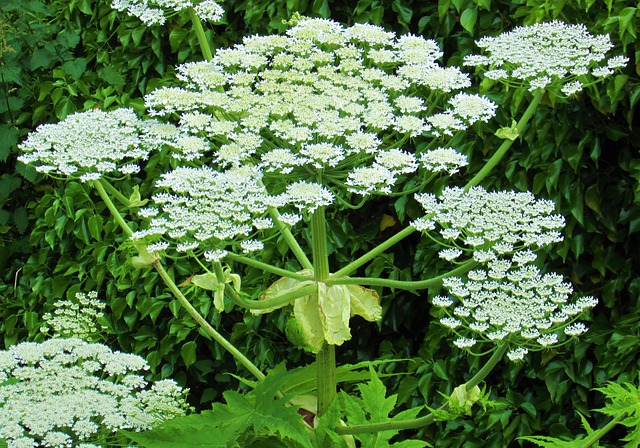
There are many benefits to a garden that's teeming with plant life. Not only can a beautiful garden make your property more appealing to buyers, some research suggests that tending plants is great for your mental health, plus your local bees will certainly appreciate all those flowers.
But there are some plants that no gardener wants to find in their flowerbeds. Certain species are renowned for their uncontrollable growing rate, or for the damage they're capable of causing. Some plants - such as Japanese knotweed - can even lead to legal trouble if you allow them to spread.
Come with us as we examine five problematic plants that you definitely don't want anywhere near your garden...
1. Japanese knotweed
Japanese knotweed is a notorious problem in the UK, making more and more headlines every year. As the name suggests, this plant is native to East Asia - it was brought to Europe in the 1800s and even won an award, but our ecosystem wasn't equipped to keep this foreign species in check, and now it is nothing more than a nuisance.
During the summer months, Japanese knotweed grows very quickly, sometimes gaining as much as 10cm per day. The plant can cause structural damage as it grows, and because lenders don't like granting mortgages on knotweed-infested properties, its mere presence can make it very difficult to sell your home.
READ MORE: Japanese knotweed removal
2. Bohemian knotweed
Bohemian knotweed is less common than its Japanese cousin (technically speaking, Bohemian knotweed is a hybrid of Japanese knotweed and giant knotweed) but it's one to watch out for nevertheless. This plant made headlines last year when it was found growing on a property in Buckinghamshire, and it certainly has the potential to become just as troublesome as Japanese knotweed if not kept under control.
READ MORE: What is Bohemian knotweed?
3. Himalayan balsam
Himalayan balsam is another non-native plant that became a big problem when it was introduced to British soil. According to the RHS website, this species is related to the busy Lizzie, and it certainly has been busy since arriving in this country; Himalayan balsam is now a well-known and widespread weed, and while it's most often found growing alongside rivers and ponds, it has also been found in people's gardens. Eek!
READ MORE: Himalayan balsam and how to get rid of it
4. Giant hogweed
Giant hogweed might be the nastiest plant on this list - in addition to being yet another highly invasive species that can land you in hot water if you allow it to grow where it doesn't belong, Heracleum mantegazzianum can actually burn your skin with its sap. Approach with extreme caution!
READ MORE: Giant hogweed removal
5. Running bamboos
Broadly speaking, there are two different types of bamboo: clump-forming bamboos like Bambusa, and running bamboos like Arundinaria. Running bamboos, also known as invasive bamboos, are the kind you don't want in your garden - their long rhizomes can reach deep into the ground, spreading far and wide and making the plant very difficult to properly get rid of.
READ MORE: Is bamboo as bad as Japanese knotweed?
If you've found any of these plants growing in your back garden, your best course of action is to contact an expert who's qualified to deal with invasive species. Call Total Weed Control on 029 2039 7554 to speak with one of our vegetation management specialists - we can carry out a survey of the affected area and treat the plant in question with selective herbicides to avoid harming the other plants in your garden.
Request a Free Survey
Photo from Pixabay
